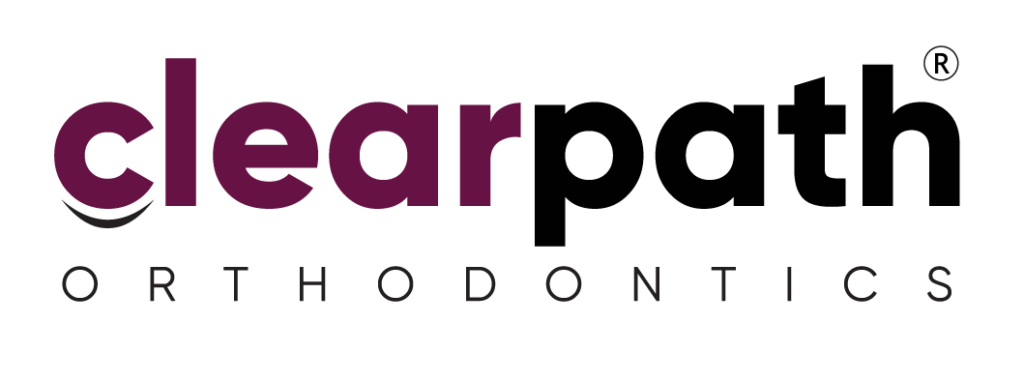Boosting Confidence Through
Counseling & Orthodontics
Psychological Counseling with Malocclusion Treatment
A beautiful smile is more than just aesthetics—it’s closely tied to confidence, mental health, and overall well-being. At ClearPath Orthodontics, we recognize that treating malocclusion (misaligned teeth and jaws) isn’t only about physical correction. That’s why we combine psychological counseling with malocclusion treatment, offering a holistic approach that addresses both emotional and dental health.
What Is Malocclusion & Why It Affects Mental Health
Types and Severity of Malocclusion
Malocclusion can present in several forms, including:
Overbite: Upper front teeth significantly overlap lower teeth
Underbite: Lower teeth protrude past the upper teeth
Crowding: Lack of space causes teeth to overlap
Spacing: Unusually large gaps between teeth
Crossbite / Open bite: Irregular bite patterns affecting jaw alignment
The severity can range from mild crowding to complex skeletal issues requiring both orthodontics and surgery.
How Crooked Teeth Impact Self-Esteem & Anxiety
The impact of crooked teeth on self-esteem begins early. Adolescents and adults often feel self-conscious when speaking or smiling, which can result in:
Avoidance of social interactions
Decreased academic or workplace confidence
Increased risk of anxiety or depression
Studies using the Psychosocial Impact of Dental Aesthetics Questionnaire PIDAQ reveal that malocclusion strongly correlates with low self-image and psychological distress, especially in teenagers and young adults.
“I stopped smiling in photos by age 14. People thought I was shy—but really, I just hated how my teeth looked.”
— Anonymous patient, ClearPath Ortho
Role of Psychological Counseling in Orthodontic Treatment
Benefits of Mental Health Support During Braces or Aligners
The journey toward a better smile can take months or even years. During this time, orthodontic treatment psychological effects can include:
Embarrassment over wearing braces or aligners
Frustration with slow results
Anxiety over appearance or social perception
Psychological counseling for malocclusion helps patients cope with these challenges, ensuring they stay motivated and emotionally resilient throughout treatment.
Counseling Techniques Used by ClearPath Ortho
At ClearPath, our counseling is:
Patient-centered: We understand that no two individuals experience malocclusion the same way.
Solution-focused: We work on boosting self-image and emotional regulation.
Supportive: We coordinate between orthodontists and mental health professionals.
Cognitive Behavioral Therapy (CBT) and motivational interviewing are frequently used techniques that help patients adjust their mindset and embrace the transformation journey.
Patient Experiences: Psychological Effects of Malocclusion
Common Emotional Challenges (Bullying, Self-Image)
Patients—especially children—often share experiences of:
Being teased or bullied for crooked teeth
Withdrawing from group photos or public speaking
Developing body image issues tied to facial aesthetics
These emotional scars can last well into adulthood if not addressed alongside orthodontic treatment.
Success Stories from ClearPath Ortho
“After years of being called ‘rabbit teeth’ in school, I finally chose ClearPath. It wasn’t just the aligners—it was the support I got that helped me smile again.”
— Sara A., 21
“Our son went from silent to smiling in 8 months. The mental health counseling was a game-changer alongside his aligners.”
— Parent of a teenage patient
Personalized Treatment Plans
Every case begins with a digital 3D assessment of your teeth—but we also take time to understand your emotional concerns. Our interdisciplinary team collaborates to:
Identify anxiety triggers
Set confidence-based goals
Integrate counseling checkpoints during aligner progress reviews
Long–Term Psychological Support & Follow‑Up
Even after treatment ends, malocclusion mental health support continues. We offer:
Post-treatment emotional check-ins
Access to virtual counseling platforms
Support groups for teens and adults
Our goal isn’t just straight teeth—it’s long-term emotional well-being.
Tips for Patients & Parents: Coping Strategies
Whether you’re undergoing treatment or supporting someone who is, here are some proven tips:
Set realistic expectations: Know that results take time and every smile is unique.
Practice positive self-talk: Focus on progress, not perfection.
Avoid comparison: Every treatment timeline is different.
Use ClearPath’s support tools: Join webinars, read success stories, and reach out to our care team.
For parents: Open conversations help children feel supported—not judged.
Fast Facts:
38% of teens with malocclusion report reduced participation in social activities (Source: BMC Oral Health Journal)
PIDAQ scores improve by over 60% after aligner treatment paired with counseling
Final Thoughts
Addressing the psychological effects of malocclusion is not optional—it’s essential. At ClearPath Orthodontics, we’re proud to lead the way in combining malocclusion anxiety counseling with cutting-edge aligner technology. If you’re ready for a transformation that goes beyond your smile, we’re here to help, emotionally and orthodontically.
Explore more on our website:
clearpathortho.com – Visit for treatment guides, FAQs, and to book a consultation today.
FAQs
Why is psychological counseling important during malocclusion treatment?
Psychological counseling is crucial because malocclusion can significantly impact a person’s confidence and self-esteem. Misaligned teeth are often linked to anxiety, bullying, and social withdrawal. At ClearPath Orthodontics, counseling helps patients manage the emotional effects of orthodontic treatment and stay motivated throughout their aligner journey. This holistic approach ensures both mental wellness and dental improvement.
How does ClearPath Ortho provide mental health support during orthodontic treatment?
ClearPath Ortho integrates malocclusion mental health support through patient-centered counseling, digital progress tracking, and emotional check-ins. Our trained care teams use techniques like Cognitive Behavioral Therapy (CBT) and motivational counseling to help patients overcome anxiety, boost self-image, and maintain treatment compliance. Support is available before, during, and even after aligner treatment ends.
Can crooked teeth really affect mental health and self-esteem?
Yes. The impact of crooked teeth on self-esteem is well-documented in psychological studies. Individuals with noticeable dental misalignment often feel self-conscious about smiling, speaking, or socializing. This can lead to lowered confidence, anxiety, or even depression. Treating both the dental and emotional aspects of malocclusion ensures a more confident and complete smile transformation.
